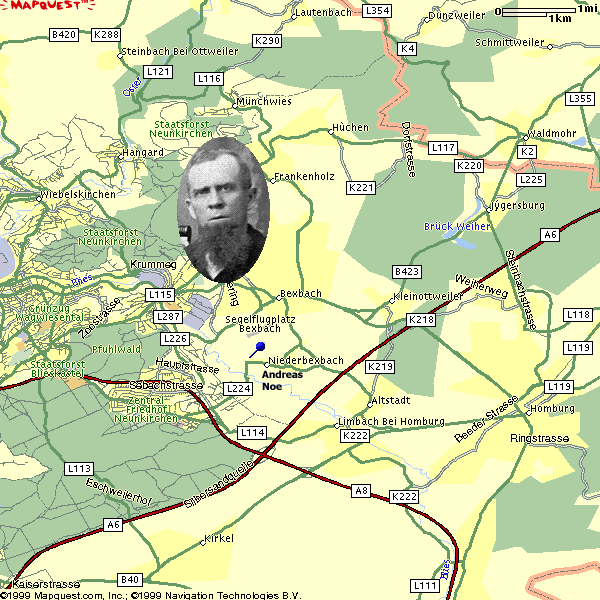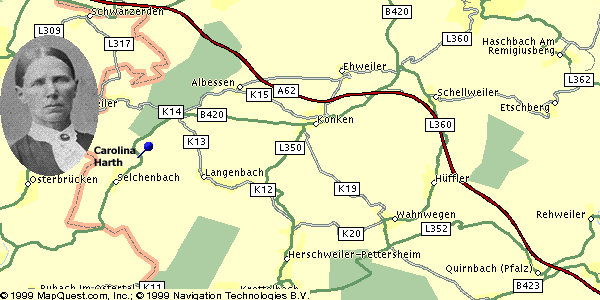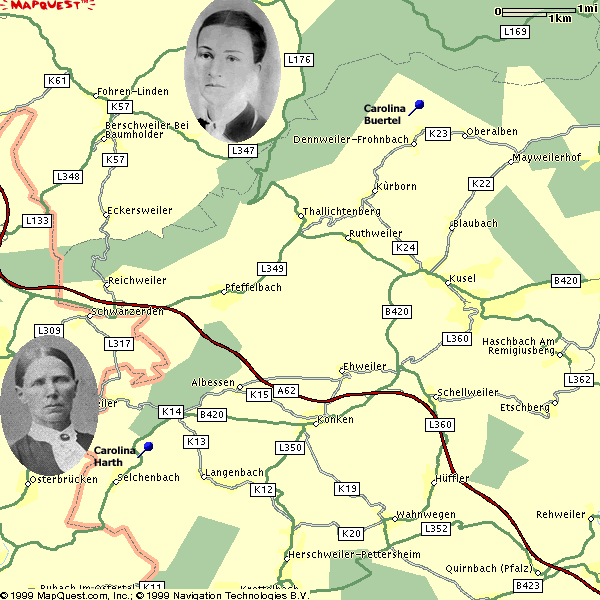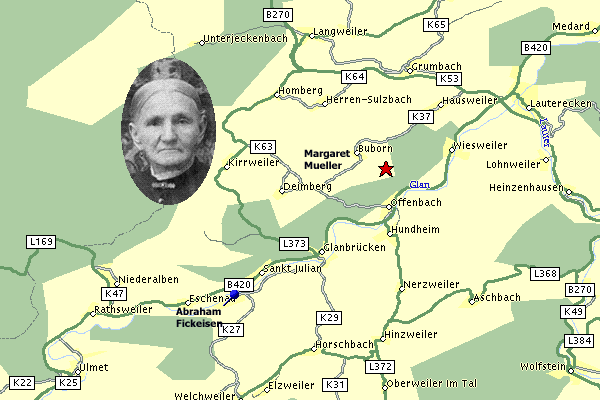






|
The
Region
|
Around Kusel
|
Niederbexbach
|
Selchenbach
|
Dennweiler
|
Gumbsweiler
|
Buborn
|
|
Batche, Batche, KucheThen a most innocent, but astonishing thing happened. I don't recall exactly how it started, but Heinrich or Michael had said something that sounded like a German "Volkssprache" or saying. I replied that I had learned many old German expressions, and especially nursery rhymes and baby songs, at my mother's and grandmother's knee. I started to recite this rhyme, which I will attempt to write down here. I will have to write it phonetically, because I never saw it written, only heard it said. "Batche, batche kuche, die Bäcker hat gerufen, . . ," Our German friends' faces had suddenly lit up. I said "I'm not sure of the words here." "Wer will gude kuchen backen, der muß haben sieben . . .," Heinrich replied. I repeated what he had said, and he said it with me. Everyone's eyes were on Heinrich and me. There we were, both speaking a dialect that I had only heard in the U.S.A., and he had primarily learned in Germany, reciting a poem that thousands of children had learned down through the generations. We continued, "Butter und Schmalz, Eier und Salz, Milch and Mehl, und Safran macht die Kuchen gäl." The poem literally means "Bake, bake a cake, the baker has to make, whoever would bake good cakes has to have seven ingredients: butter and goose fat, eggs and salt, milk and flour and saffron makes the cake yellow." It is told to toddlers, being held on mother's lap, very much in "patty cake" fashion. I felt connected, really connected to these, my new German friends, and to the homeland of my ancestors. They wanted to know what other rhymes I knew. I shared a songs I learned from Thelma Geiger, my 11th grade German teacher. More, they said. I shared a bit more. Then Heinrich began to share rhymes with me that I had never heard. One that he shared, I wrote down: "Hoppe, hoppe reiter. Wenn er fällt, dann schreit er. Fallt er ihn der Grabe. Fressen ihn die Raben, Fallt ihn den Sumpf. Macht er reiter, plumps." As Heinrich has exlained in an e-mail to me, the rhyme means "Whoops, whoops, the riderman, when he falls, he will cry out. When he falls into a ditch, the ravens will eat him; when he falls into a swamp, he will go 'bump'." I told Heinrich that day, "Now, I smell the blood of my ancestors!" More of Gumbsweiler | Back to Europe |
|||||||